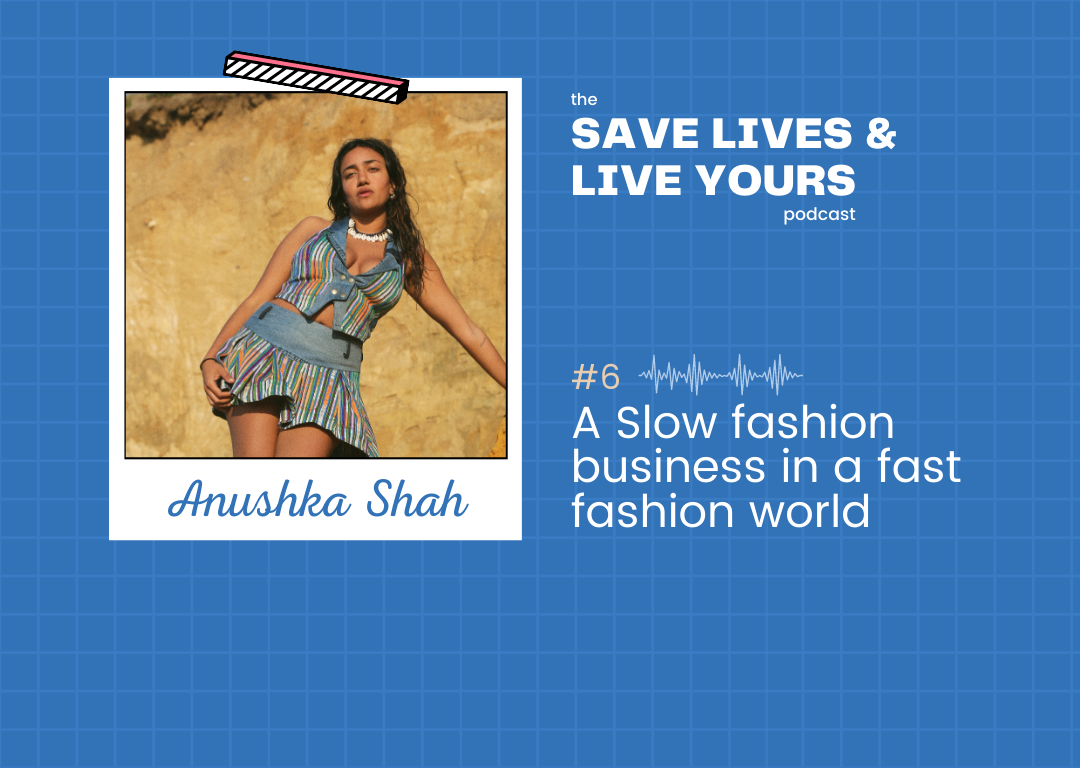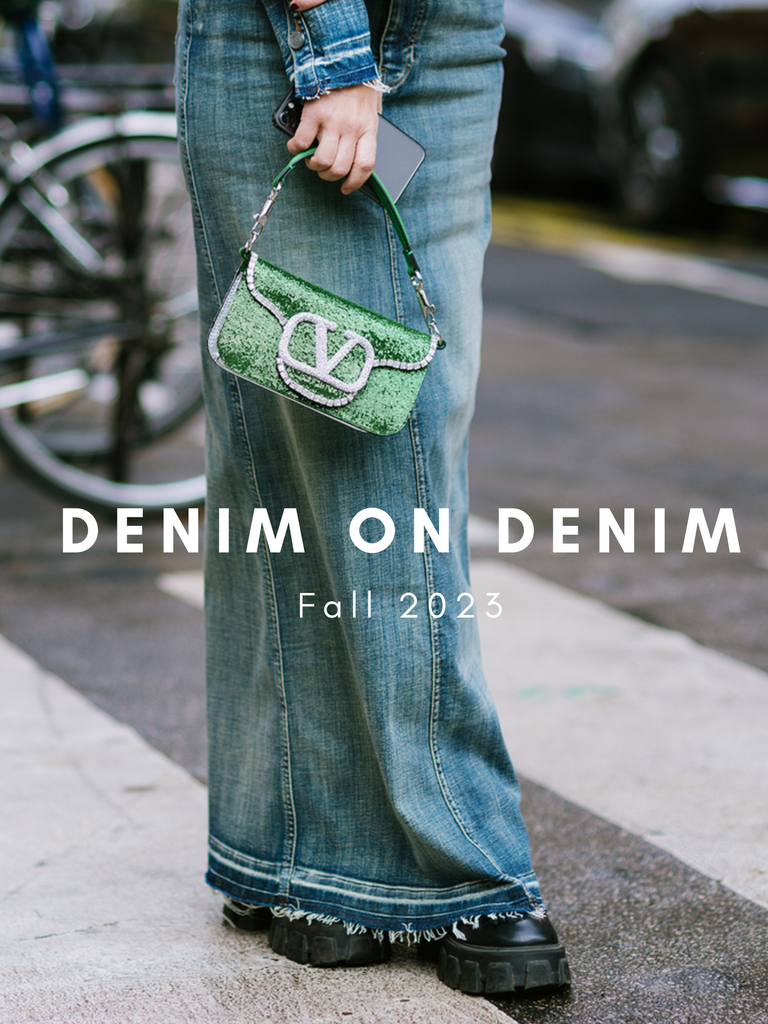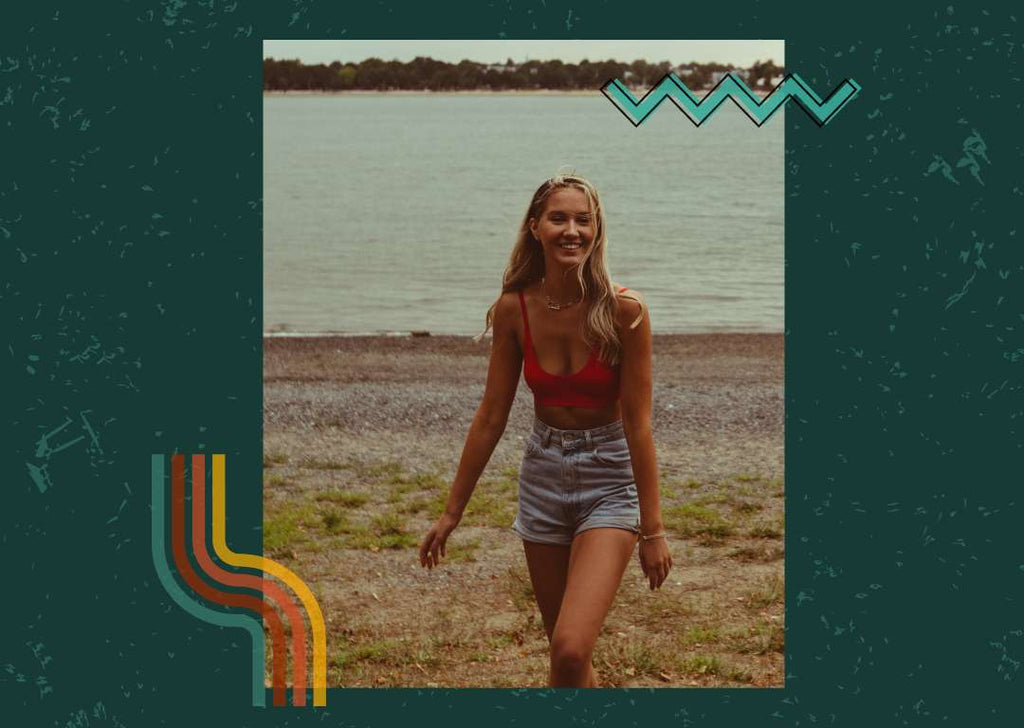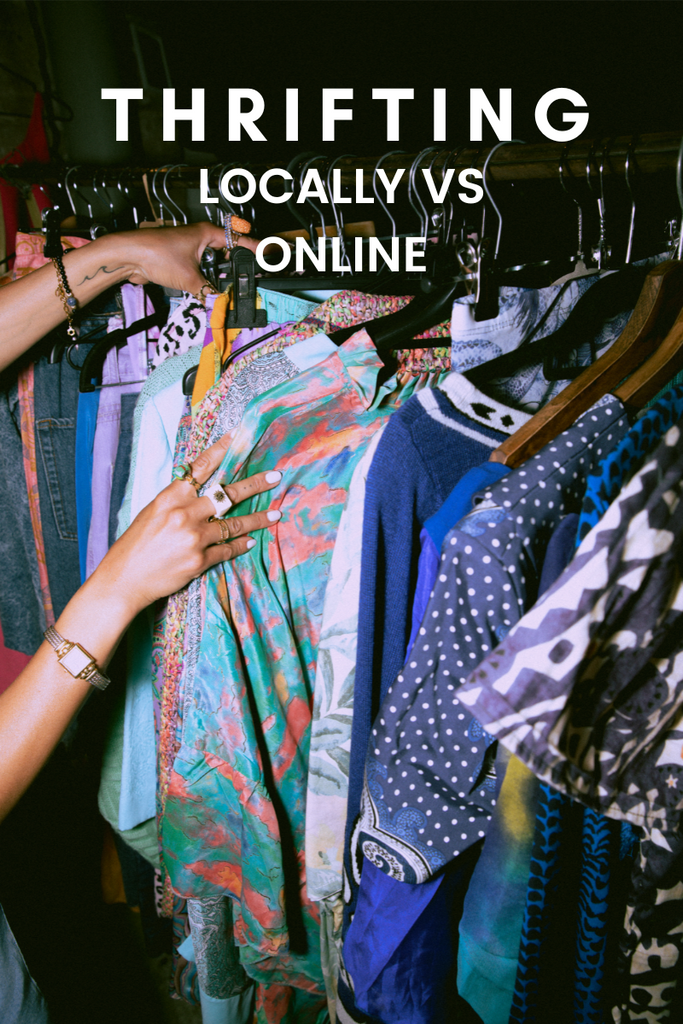Episode transcript
Annie: Can you tell me a bit about Casa, please? Because I've heard nothing about it. Nothing at all.
Anushka: You’ve heard nothing about it?
Annie: I've heard only from stalking, like, through my own research, but I haven't seen you in so long.
Anushka: Yeah, I guess I started it like it was around this time last year. Which still feels weird to say that I started it then because I was just in Morocco on that solo trip, which was amazing.
Annie: Why were you on a solo trip?
Anushka: Well, I wanted to go somewhere on my own, I've been there before and I was so like enchanted and then I just wanted to go back partly for the textiles and I wanted to also, you know, take some photos just like, sort of have like a creative solo trip.
And I thought it's far away enough to not feel, you know, like I'm sort of just traveling in Europe, but it's close enough to feel like I'm not going too far away, but it's, it, it's still got like a French and Spanish and Arabic, like, it's such a melting pot of like different cultures, which is amazing.
So, yeah, I didn't really give much thought to it. I just found really cheap flights and just went. But when I was there, I found these like amazing textiles. And I made friends with this guy and I just had this kind of opportunity to make things, which felt so simple and doable here (Morocco). Whereas in London, it's like a whole process where you have to, you have to plan things in advance. And I'm not very good at that, as you can tell from the organization of this podcast
But you know, I just find it quite stressful to plan things and to structure creativity because I feel like that in itself feels like an oxymoron. So I found these textiles, I made some patterns like on my own. I've never had any training in fashion, like formal training. So it was obviously like quite badly made, but I just sort of copied and slightly altered the clothes I had, just in a hostel bar!
Annie: The clothes were shit!
Anushka: And then I met this guy called Idris who was very sweet. And his whole family, like sort of took me in and they were all really nice. And they, yeah, and they introduced me to a tailor, so I went to the tailor and then I just sort of asked him to make these clothes for me. And it was just, it was so simple, like they just, they turned out, you know, not perfect by any means, but I, I saw something kind of click where I was like, I can see this, you know, being made as a real outfit with, with all the things I need. I can see it being really cool.
The first thing I ever designed was the waistcoat and skirt which is called the layla set.
Annie: Hopefully I can work out how put an image of that up here. So we'll, we'll see if that works. So you don't have to describe. But yeah, carry on.
Anushka: Yeah, so that was the first outfit that I made. I didn't have the name at that time.I was just like, you know, this is just yeah, an outfit that I think would go really well.
Annie: So that outfit was for you? You made that for you?
Anushka: Yeah, kind of. I was like I made this, I'm gonna make this outfit just because I want to, I don't really know what's gonna come of it and then I found a lot more textiles, like there's some beautiful, like indigo dye cotton that this man who had lived in the desert, and he taught me about the process of how they do the beti dying.
And it was all just really cool and it felt like I was having like a really culturally enriching experience but also creating, you know, these things collaboratively. But yeah, so I made like 10 pieces, 10 samples.
And then I met this girl who was just like, very beautiful. I thought she was a model but she, wasn't a professional model. We became friends and I went to Valencia,just because I'd met this guy who invited me to Valencia, but she happened to live there. She's from Sweden.
So after Morocco, I went to Valencia for a weekend and we did a photoshoot in her like amazing house that she was renting there. And it just, it kind of just really like, worked out. I don't know how, but we had so much fun and we just took all these amazing pictures. And she just, she really understood the vibes and everything.
And then, and then I was back in London, like on my mom's sofa and I was like, I'm just gonna post it on Instagram.
So I, I literally, I thought of the name like on my mom's sofa like it was just like, this sounds, cute. And then people were like, oh, where can I buy this? And blah, blah, blah. And I was like, oh my God, I didn't even think about like, selling them yet. But then I was like, I might, I might as well, you know, try, there's no harm in doing that.
So then went back to Morocco like a week later. A week later after my graduation. And I was introduced… So this is crazy. So I, I met this lady in, at Bella Italia in Soho. She was like a really old lady. She was a journalist and she was like, oh, I spent a lot of time in Morocco and Algeria, like in the nineties and I was like, wow, that's so cool. I was like, I'm going there next month.
She gave me the contact of this man who she said knows a lot about like sort of textiles and all these things and has family that works in textile stuff. I was like, wow, amazing. I'll contact him.
So then he introduced me to, to Layla who turns out who, who, you know, ended up being the person that I'm working with continually. So that was amazing.
And she, because I'd gone to a couple of like other cooperatives, but she was just really, I just, I felt so much warmth and like sisterhood and all these things when I visited them and she was just a really kind and like warm person.
And so they, yeah, they weave these, they weave carpets in their traditional way, like, using like hand looms and it takes like a week to make one carpet. They make up all the designs themselves. Like that's, they devote their whole life to this and she actually started the cooperative after her divorce.
So yeah, lots of like layers and things to that and she gives work to women who have also gone through sort of yeah, divorce or, or widow or, or been widowed or, you know, who want to have financial stability and independence.
So yeah, that was a, that was an amazing like connection to make and it felt really right and the synergy was, was there and he taught me how to weave and it was just a great few days.
And then yeah, literally from, from then on I, I was like very much doing it on the job because I, I feel like normally when people start a brand, like they do all these things before they launch it.
Annie: yeah, you know, like a year later they'll launch it, but that's not what, that's not what this was.
Anushka: No, I mean, I never thought about, like, I never thought about it being a brand then, because everything happens so organically and that I think, that's what made it really good.
And I think now I'm sort of learning how to make it into more of a business.
Annie: And how is that? Making it into a business?
Anushka: I mean, yeah, we try. I mean, it is definitely a running business now but it's just, I guess difficult cos I'm doing it all basically by myself apart from the sewing. It's a lot to do and I feel like I definitely need to work more on the structure.
But, you know, I've, I've had people who helped me with the website. I get on really well with the people in London who produce the clothes and, it's just, I guess being on top of everything and trying to control every aspect is difficult and then on top of that, like, still keeping that, the spark and the magic and the storytelling aspect alive is like, it's really hard because you have to, you have to take breaks and you have to, like, because it's really easy for your job to become your whole life and like to feel really overwhelmed with that when it's, when it's your passion, it's not something that cuts off at like, five o'clock,, or whenever you leave the office.
So, it's, yeah, that's difficult but it's also, I can't imagine doing something, doing anything else.
Annie: And so just clarify for me. So, the materials are made in Morocco and then they're sent to London. Where the clothes are then made?
Anushka: Mhm. Yeah.
Annie: And does that, how long can that process take? And when people order, are they ordering stuff that's already been made or are they ordering it and then you're saying to the people in Morocco, ‘Ok. We need this fabric because someone's ordered this’. And then you're saying to the people in London ‘you need to make this because someone's ordered this’? How does that work?
Anushka: So that's, that's a big, that's been a bit of a struggle because,, ideally I'd be able to just order a lot of bulk and then have all the clothes made. But that costs a lot of money. And since I'm not, I'm not taking any investment and I'm, it's all self funded, that's really tough because it's like I have to do things made to order, which means, you know, making one off items in London is a very expensive process because it's like people also have to think about their margins and blah, blah, blah, so it's mostly made to order.
I do make samples, of things and then things that I know sell really well, like the, the white carpet that, which is like the best seller I’ll I make like a few of those at a time. But other than that, it's mostly samples.
And also because I'm not just working with the carpets anymore. There's like other fabrics that I'm using like the indigo cotton and then some woven fabrics from Mexico and Guatemala.
They, I basically made everything so that is in stock now, which is great. But yeah, I'm kind of figuring out like how to, how to manage that. And it takes, you ask how long it takes as well.
Annie: Yeh, how long?
Anushka: Yeah, so usually I have stock but because the studio is not in my house, it's a bit difficult to like to tell when it comes to, you know, comes to the point of me needing to order more.
And also because it's all based on demand, it's like, yeah, I think that that will come with time because it is quite a lengthy process like it takes a month for them.
Annie: But that's the beauty of it, right. Like everyone orders stuff now and it comes instantly like you can get stuff delivered. If you live in London, you can get stuff delivered the same day. Everyone orders like piles and piles of clothes. Like if you order from Zara, you can order piles and lots of clothes that come the same day and you have it there and that, but there is a beauty in having to wait for something, don't you think?
Anushka: Absolutely.
What about the marketing and social media side of things?
Anushka: It's a real job, like the social media stuff as well because I do it all myself at the moment obviously.
But like, and I really, I like that because it means I get to interact with customers and the people and like, I've made so many amazing, like, connections and met so many cool women from Instagram.
But like, it is also sometimes you're not in the mood to post on social media. But it is, it is like the number one driving force of the business. Like, if I didn't have Instagram, I wouldn't be able to have like, because it is, it is also an amazing way to, to put out the energy that you want to attract.
Annie: Yeh, and you can't get that personality or you called it a ‘story’. You can't get that across on a website,
Anushka: the website, it feels very gray and dull like, and, and I don't like that.
Annie: No. Exactly, I completely agree. And a website is great and important for logistics and for like, you know, streamlining processes. But social media is an amazing tool and it's, you know, if you have access to wifi then it's a free tool. So as long as you have access to broadband or wifi, you're gonna, you're gonna be able to access it.
Are there any problems with relying on social media?
Anushka: It's really important to be cautious of not relying on social media for like validation, which is really hard because I don't really, I don't do that with my personal Instagram but like with the Casa one, I feel like, because I'm sort of basing my worth on the amount of likes that, you know, you get on a post or something or like the amount of replies you have on a story which is so fucked because like it shouldn't be that way.
But then because it is the main way that I interact with my customers and with the community and everything, it's like, it's not really like, yeah, and also because I put so much of myself into the brand that the brand is an extension of my personality to an extent.
It’'s really hard to not take things personally and then sometimes it literally is just the algorithm being annoying. So yeah, that's something I'm definitely, definitely trying to like work on separate, you know, myself from the job. But then it's hard when the job is so in my heart, you know,
Annie: Are you proud of the business right now and where it is?
Anushka: Yeah, like I find it really hard to be not in like an annoying way, but I find it really hard to br proud of it. Like I want to, I, I want to be self-sufficient off the business.
And I'm definitely, I think when I take a step back and like people tell me that, oh, it's so cool, blah, blah, blah then it makes me sort of realize that I should be proud of myself.
And I need to take a step back and put things in perspective and be like, actually, you know, this is really cool that I've done this and I should be proud of it.
And like, you know, I think, I think when I felt most proud is when like Layla's family and her daughter sent me messages being like, like, just thank you so much for like sharing our traditional craft with the world. Like it means so much.
They saw Nat Kelly, the pretty famous actress wearing one of the outfits that was from their carpet at New York Fashion Week, which is pretty cool. But in the moment I don't realize like how big of a deal that is.
But I guess there's, there's moments where of that of being reminded of what you've achieved. But yeah, on a whole, I didn't really answer the question but I, I don't know, I, I guess yeah, in, in a way I am proud of myself.
But I also try to stay like, I know that there's a lot more to be, to be done and I know there's a lot more that I need to do for the business. Like it's not, it's nowhere near at the point I want it to be at.
Annie: I think it's difficult to be proud of yourself because, like, firstly, pride comes before a fall. That's what we're all taught. You don't wanna even for one second be like, oh, this is going well, like, oh, that was good in case, that's it, you know?
Anushka: Yeah.
Annie: So it's much easier to always be like, ok, next, next, next, next, like, what could be better, what could be better. But there's definitely an unhealthy element to that, like, on the one hand, I mean, it's, it's just balance, isn't it?
Like it's important to have goals and ambitions. I get really sad and low when I don't have something to work towards and like sometimes I just need to have goal after goal after goal to stop myself from having any time to think about my own thoughts. So that's too, too far. Like you have to have a balance.
Anushka: I think that's something I'm really thinking about in my life. Like, because I think I, I genuinely am so happy when I'm in nature and when I'm in contact with food and when I'm creating art just for the sake of creating it and not the, the point of selling it.
You know, painting and cooking and all these things. And I just, I really crave a lot of freedom in my life and I feel, and community as well, which I feel like are the things that are just not really viable in London all the time. And I think balancing that life with the running a business life is like a massive struggle.
Because I don't want to be too, like, away with the ferries and just not conscious of the fact that I'm, I've got to make money and I've got to live off this, but I also think that there's a lot more to life than, than that.
I think you, you have to make choices at some point and you have to, like, balance is obviously really important, but you also have to be realistic and compromise things and make choices about what you want. Like, I'm thinking about that a lot, it's really difficult
Annie: And I guess if you are running a business and you're using ethical and sustainable practices, it's gonna be harder to make a business out of it because our world is not built for that for. So, have you had, have you had moments where that's been frustrating?
Anushka: Well, yeah, I mean, I just see how people are doing it in a much easier way. Like, you know, I know a few brands that just use sort of dead stock from factories or like they buy their fabrics online and like, that's great. It's so good that they're able to do that andthen make clothes and then the margins are huge because the price of production is so, so cheap, well, relatively.
But because I'm using fabrics that are coming all the way from Morocco and being handwoven, they are very expensive, well, not expensive but they're worth what they're worth. But I mean, in terms of me making a profit, they're expensive, and I just didn't really think about me making a profit at all when I started, I was like, I just want to do this and, and, and work with these women and show people that fashion is more than trends and all these things.
But yeah, I think that is, it is frustrating because at the end of the day, people just want to see a hot product. Like they don't, the storytelling aspect is, is great and it's fun and all of that. But like if the product's not amazing, it sadly doesn't really matter at the end of the day, like in people's eyes, in terms of buying clothes, there's a reason why people shop at Zara because the, the clothes look good .Like the designs are great. Even though, you know, the quality is probably not that good and the the sewing isn't that good. People don't really care, because it's not the way that we've been programmed to look at fashion.
And they do make quite timeless outfits, you know, aesthetic wise like Zara is one of the fast fashion brands which has marketed itself so well, to not look like another fast fashion brand. Like it still looks quite chic and classy, you know, if I, if I had a dress from Zara and compared it with one from, you know, like some sustainable brand, I don't think people would be able to tell the difference because yeah, they know how to make things look expensive even though the cost of labor is so cheap.
So it's like I do, I, you know, I do realize that, it takes a lot for people to be convinced to spend that extra money on clothing and that's why the storytelling is so important because it's not just about the product, it's about the stories and the hands that made them and it's about where these weaving techniques came from and it's about preserving cultural identities.
But when people are buying a piece of clothing to wear to a party or like a festival, I don't think they really, like, there's a small amount of people that really care and I think more people are starting to care.
Annie: And also, you've got to have the time, the headspace and the money to be able to think about that. It's a massive privilege.
Anushka: Yeah, for sure.
Annie: Like when you can buy something for so cheap and have it, you know, and get that spark of joy from it, but it might have only cost you, your dress might have cost you literally like, £5. And that might be the only recreational spending you can have for that month.Then it's hard to kind of say, to say to people don't do that, you know.
Anushka: Yeah.
Annie: Which is really sad because for the fashion industry to change, you know, clothes that are made in a sustainable way need to be accessible to the majority of people.
Anushka: Yeah, we also need to buy less because I see people doing like hauls of like £900 and they could have bought three or four things from like sustainable brands that would last them so much longer.
Annie: Probably forever. Exactly.
Anushka: So, I think that there's that too. But no, absolutely, definitely sustainable fashion is not, I mean, sustainable brands are not accessible for the masses, but I think if you can afford them, then you should be more conscious about them.
BOAS' Blog
Newsletter
We strive to inspire with our emails, so we don't send many and they're meant to make you buy less and buy better, so no sales emails.



















